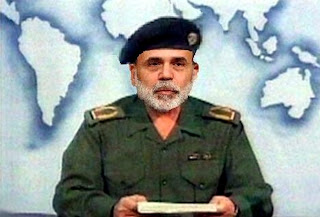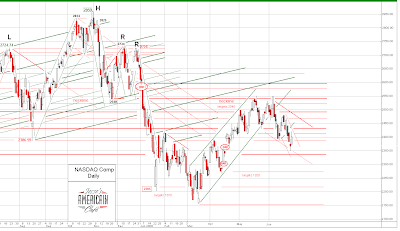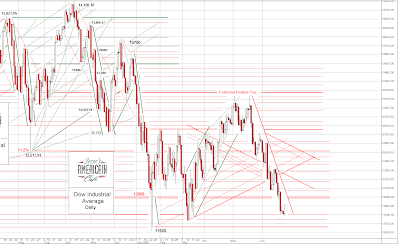"If every day a man takes orders in silence from an incompetent superior, if every day he solemnly performs ritual acts which he privately finds ridiculous, if he unhesitatingly gives answers to questionnaires which are contrary to his real opinions and is prepared to deny his own self in public, if he sees no difficulty in feigning sympathy or even affection where, in fact, he feels only indifference or aversion, it still does not mean that he has entirely lost the use of one of the basic human senses, namely, the sense of humiliation." Václav Havel in a Letter to Dr. Gustáv Husák 8 April 1975
 Fed Keeps Rate at 2%, Cites `Upside' Inflation Risks
Fed Keeps Rate at 2%, Cites `Upside' Inflation RisksBy Craig Torres
June 25 (Bloomberg) -- The Federal Reserve kept its benchmark rate at 2 percent and
warned that faster inflation may accompany some strengthening of the economy. ``
Although downside risks to growth remain, they appear to have diminished somewhat, and the upside risks to inflation and inflation expectations have increased,'' the Federal Open Market Committee said in a statement in Washington after a two-day meeting.
Fed Chairman Ben S. Bernanke and his colleagues ended the most aggressive monetary easing in two decades, refreshed their forecasts and reported some improvement in consumer spending. At the same time, crude oil prices have almost doubled in the past year and the cost of commodities from wheat to tin jumped to unprecedented levels.
``
The Fed is more balanced now in their assessment,'' James Paulsen, chief investment strategist at Wells Capital Management in Minneapolis, said in a Bloomberg Television interview. ``A rate hike is now back on the table. If it goes weak again, it can ease.''
Stocks rose after the decision, pushing the Standard & Poor's 500 Stock Index up 0.6 percent to 1,321.97. The yield on the benchmark 10-year Treasury note rose about 1 basis point to 4.09 percent. The dollar weakened against the euro.
``The Committee expects inflation to moderate later this year and next year,'' the Fed said. ``However, in light of the continued increases in the prices of energy and some other commodities and the elevated state of some indicators of inflation expectations, uncertainty about the inflation outlook remains high.''
 Next Meeting
Next Meeting``It is more or less a neutral statement, which is consistent with policy on hold pending more clarity,'' said James O'Sullivan, a senior economist at UBS Securities LLC in Stamford, Connecticut. ``They are not tipping their hand for the next meeting.''
As policy makers convened, reports showed U.S. home prices fell the most on record, consumer confidence touched a 16-year low, and durable goods orders were unchanged in May. Households are also falling further behind on their debt, eroding profits at lenders. Banks and securities firms have taken almost $400 billion in asset writedowns and credit losses.
``Tight credit conditions, the ongoing housing contraction, and the rise in energy prices are likely to weigh on economic growth over the next few quarters,'' the Fed said.
Continued ExpansionAt the same time, the statement contained no mention of the contraction in gross domestic product that many officials judged possible at their April meeting. A government report tomorrow will probably show the economy grew at a 1 percent annual pace in the first quarter, up from an initial estimate of 0.9 percent, according to a Bloomberg News survey of economists.
Dallas Fed President Richard Fisher dissented from today's decision, preferring an increase. He dissented against the rate cut at the April meeting.
Oil prices touched a record $139.89 June 16, extending a rally that helped push the consumer price index up 4.2 percent in May compared with an average rate of 2.7 percent over the past decade. Energy costs are hurting profits and household incomes, and raising expectations for future inflation....
 Dow, UPS
Dow, UPSDow Chemical Co. said yesterday that higher raw materials costs will cause the company to raise prices by as much as 25 percent in July, following an increase of as much as 20 percent. United Parcel Service Inc. lowered its second-quarter profit forecast on June 23 because of rising fuel costs and slowing U.S. growth.
American consumers foresee average annual inflation of 3.4 percent over the next five years, the highest expectation since 1995, according to the Reuters/University of Michigan survey.
Policy makers are ``going to remain about where they are until the data come in and make a strong case to move one way or the other,'' William Poole, former president of the St. Louis Fed, said in a Bloomberg Television interview.
Home prices in 20 U.S. cities fell in April by the most on record, signaling the housing recession is far from over. The S&P/Case-Shiller home-price index dropped 15.3 percent from a year earlier. The gauge has fallen every month since January 2007. Employers have reduced payrolls for five consecutive months, helping push the unemployment rate to 5.5 percent.
 Crisis Response
Crisis ResponseCentral bankers reduced the target rate for overnight loans between banks by 2.25 percentage points in 2008 with a series of aggressive rate actions, including two three-quarter-point cuts. In addition, the Fed invoked emergency authority in March to start lending directly to investment banks. The central bank also provided $29 billion of financing to secure JPMorgan Chase & Co.'s takeover of Bear Stearns Cos.
The FOMC at 10:45 a.m. today held a special meeting with supervisors to discuss investment banks and their borrowing of securities and cash from the Federal Reserve, according to a notice on the central bank's website. Fed officials have given themselves until September to decide on the future of the direct loan facility.
The financial system remains under stress. The Standard and Poor's Financials Index, which includes 90 bank, brokerage and insurance stocks, fell 21 percent from May 2 to June 24.
``Business conditions continue to weaken in the U.S. and so far this month we have seen credit indicators deteriorate beyond our expectations,'' American Express Co. Chief Executive Officer Kenneth Chenault said in a statement today.
Financing rates are also rising for consumers. The rate on a 30-year fixed-rate mortgage rose to 6.3 percent June 24 versus 5.79 percent at the start of the year, according to Bankrate.com.
 New Projections
New ProjectionsFed officials discussed their new forecasts for 2008, 2009 and 2010 at the meeting. Bernanke will reveal the FOMC's new outlook for inflation, growth and employment in his semi-annual congressional testimony next month.
Wall Street analysts are divided on how higher energy costs may affect growth. The 38 percent rise in oil prices this year absorbs more consumer dollars, pulling spending away from other goods and services. If inflation is allowed to rise further, the purchasing power of incomes could fall. After tax incomes adjusted for inflation rose at a 1.8 percent rate for the 12 months ending April, versus 3.1 percent for the same period a year earlier.
The federal government has also injected $70.8 billion into the economy through tax rebates, which could lead to one or two quarters of stronger growth and add momentum to price increases.
To contact the reporter on this story: Craig Torres in Washington at ctorres3@bloomberg.net
Last Updated: June 25, 2008 16:33 EDT
 Pot notices the deep dark color of the kettle.
Pot notices the deep dark color of the kettle.














































































